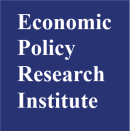The analysis of multiple overlapping deprivations and poverty (MODA) proposes a holistic approach to understanding the multidimensional nature of poverty and deprivations of children. N-MODA is a specific application of MODA which uses national databases and country context-specific parameters to analyse the situation of children in a specific country.
The methodology was developed by the UNICEF Innocenti Office of Research. MODA aims to analyse the deprivations suffered by children and to identify the ways in which these deprivations overlap. Using recent, high quality survey data, specific contextualised choices can be made regarding different age groups, dimensions and indicators of deprivation, deprivation thresholds, and other methodological specifications to apply the MODA methodology for each specific country profile.
The deprivation analysis covers dimensions relating to access to necessary services in the areas such as health, nutrition, education, water, sanitation, child protection, and information. As the needs of children are specific at different stages of their life cycle, the children are often divided into different groups.
That allows detailed analyses of age and gender specific profiles, deprivation and needs. EPRI is currently implementing the MODA analyses in Cote D’Ivoire, Tajikistan, Laos, Botswana, Kosovo, Palestine and the Democratic Republic of Congo
All ProjectsAfrica Angola Bangladesh Benin Brazil Cambodia Cape Verde Caribbean Cote d'Ivoire Democratic Republic of Congo Ethiopia Germany Ghana India Indonesia Iraq Jordan Kazakhstan Kenya Kyrgyz Republic Latin America Lesotho Malawi Morocco Mozambique Myamar Nauru Nepal New York Nigeria Norway Oman Pakistan Philippines Rwanda Slovenia SO South Africa Sudan Sweden Tanzania Thailand Uganda WS Zambia
